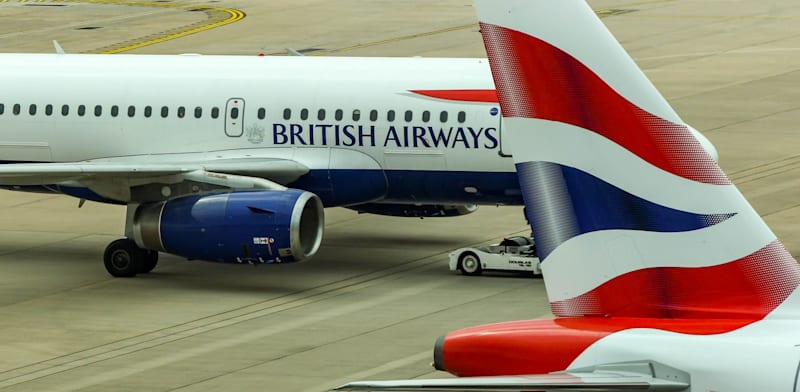
British Airways announced at the weekend that it was extending the period of suspension of its Israel flights to the end of July. The move will considerably add to the summer season crowding on the popular Tel Aviv-London route, which is also in demand for connecting flights on British Airways from London.
British Airways has thus joined other airlines that have announced extended cancellation of flights, among them Air Canada, which had planned to return to Israel at the beginning of June but has now given up on the summer season, and EasyJet, which has deferred its resumption of service by a further month and will not now return before the beginning of July.
The fear is that British Airways will continue to extend the suspension of its flights and will forego the late summer season as well. At the same time, there are airlines that have been announcing short-term suspensions, updating weekly, the most important of them being United Airlines, Lufthansa Group, and Ryanair, which have extended their cancellations for a few weeks.
Each airline has its own set of considerations. Airlines that operate long-haul flights to Israel, such as from New York or London, have to put up the crew in Israel overnight, because the total duration of the outbound and return flights exceeds the number of permitted flying hours under international regulations. In the case of short-haul flights, the same crew can sometimes man both the outbound and return legs, without the need for an overnight stay in the middle. This consideration makes long-haul flights more complicated and expensive to operate, especially when staying overnight in Israel involves a security risk.
In the past, British Airways would overcome the problem by making a stop in Larnaca to change crews. Similarly, United Airlines made stops in Munich for the same purpose in the winter of 2024. This kind of solution makes it possible to avoid overnight stays in Israel and to keep flying, but it adds to the cost and duration of the flights, and therefore lasted only a few months.
British Airways is one of the largest and oldest airlines in the world. It is part of the British-Spanish International Airlines Group, formed in 2011 by the merger of its merger with Iberia. The group also includes Vueling and Aer Lingus. Iberia can therefore also be expected to extend its suspension of Israel flights. So far, it has canceled flights until the beginning of June. Since 2020, Qatar Airways has been the largest shareholder in IAG, with a 26% stake.
The extension of its cancellations by British Airways is liable to influence smaller airlines, which do not have the risk management capabilities of the major carriers. If a company like British Airways needs a whole system to deal with a problematic route like the route to Israel, for small airlines that are based on efficiency and punctuality any additional deviation or risk is liable to make the entire route unprofitable. Cancellations by major airlines create an atmosphere of instability, undermine the sense of security of other companies, and make it difficult to return to routine. The aviation industry, like other industries, is sensitive to herd mentality, and a decision by one player, especially if it is a big and important player, generates a chain reaction among others, even if they don’t all have the same justification. When an airline like British Airways announces the extension of cancellations, other immediately carry out a risk assessment.
British Airways received concessions, and is now cancelling
British Airways and Ryanair are among the foreign airlines that openly pressed for an amendment to Israel’s Aviation Services Law, a law designed to protect the rights of passengers in the event that a flight is delayed or cancelled. The law, which was passed in a normal period, presents a significant challenge for both Israeli and foreign airlines in wartime, since it obliges them to pay compensation and hotel expenses to passengers even when a flight has been cancelled for security reasons. Both airlines have extended flight cancellations to Israel several times since a missile fired from Yemen landed near Ben Gurion Airport on May 4, and have not resumed operations even though important airlines such as Delta have done so.
In discussion in the Knesset Economic Affairs Committee during 2024 and up to the amendment of the law in February, British Airways stood out in its efforts to reduce the economic risk in operating flights to Israel in wartime, and expressed readiness to resume flying if foreign airlines received relaxations in the law in accordance with the situation. Ryanair even disclosed how much compensation it had been forced to pay passengers because of the situation, estimating it at €4 million. The foreign and Israeli airlines argued that amending the law in such a way as to ease the obligations on the airlines even at the cost of some harm to consumers would help in bringing them back to activity in Israel.
The amendment that was passed allows the minister of transport, with the approval of the Economic Affairs Committee, to suspend temporarily some of the rights of consumers in an emergency: an exemption from payment of compensation, restricting paid hotel stays to two nights, shortening the minimum notice period for the cancellation of a flight from fourteen days to three, and the possibility of offering an alternative flight not to Israel but to a nearby destination. These relaxations are valid for a period of up to sixty days each time, but only if a “special situation” is declared.
Despite the fact that British Airways and Ryanair received almost everything they asked for, they are still not rushing back to Israel. Their reluctance is partly explained by the fact the minister of transport has not yet declared a “special situation,” and so the relaxations have not come into force. On the other hand, the very fact that the law was amended creates a legal precedent that could be invoked by airlines in defending against future claims by passengers even if a special situation has not been declared, and harm the ability of passengers to claim compensation when their flights are cancelled.
Published by Globes, Israel business news – en.globes.co.il – on May 25, 2025.
© Copyright of Globes Publisher Itonut (1983) Ltd., 2025.







